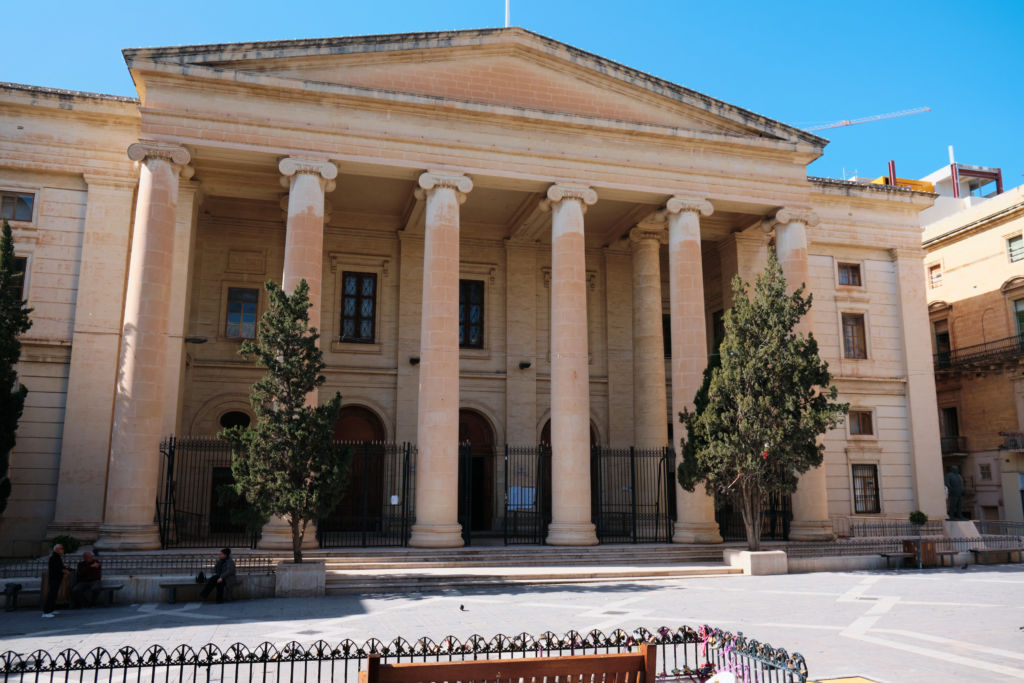Moment Of Truth For MFSA As Constitutional Case By Aggrieved Business Challenges Its Powers

Financial regulation in Malta as we know it could soon change forever, with a constitutional case against the Malta Financial Services Authority (MFSA) calling for it to be divested of some of its powers.
Financial services provider Phoenix Payments Ltd, owned by Marco Lavanna, is warning that the MFSA’s powers allow it to act as investigator, prosecutor and judge and that no effective remedy exists for aggrieved parties.
“For argument’s sake, it’s as though the police have the power to sentence people after investigating them,” the application, signed by lawyers Louis de Gabriele, Kristina Rapa Manche and Diane Bugeja, reads.
The MFSA investigated Phoenix in May 2020 and identified a number of structural shortcomings, such as the fact that it didn’t have a functioning board of directors at the time of the inspection, that the board wasn’t regulated by a formal charter, and that it hadn’t adequately discussed the company’s strategic direction or assessed the risks to its business model.
However, Phoenix countered that the reason behind this was a delay on MFSA’s part to approve the directors it proposed in the first place.
Phoenix is now facing a €32,000 administrative fine and has been temporarily banned from providing new services to its current clients, with the penalty published on the MFSA website.

Besides internally appealing this penalty at the Financial Services Tribunal, Phoenix has filed a constitutional case against the MFSA, warning that the current system doesn’t give the company a right to a fair hearing.
In its application, Phoenix’s lawyers noted that Article 39(1) of the Constitution specifies that everyone who is charged with a crime has a right to a fair hearing, within a reasonable timeframe, by an independent and impartial court or judicial authority.
Previous jurisprudence established that the administrative procedures against Phoenix qualify as penal, rather than civil, procedures, which means Article 39(1) applies.
They also noted a recent judgment against the Electoral Commission, following a complaint by the Nationalist Party, which found that the Commission’s dual role of investigator and punisher breaches the Constitution.
The MFSA, Phoenix argued, cannot be viewed as an independent and autonomous authority because its board of governors is appointed by the Prime Minister for a five-year period, with the possibility of reappointment afterwards. Its CEO is appointed by the board.
“In practice, they follow the state executive’s political direction,” the application reads. “This means it can never be impartial when exercising its regulatory powers. It’s a public authority which acts as a regulator, investigator, prosecutor and judge at the same time.”
“Everything starts and ends with it. It formulates policies and directives which apply for the people it regulates, it formulates government policies upon which financial laws are passed, it carries out investigations at its own discretion and evaluates the information it gathers itself.”
“It also decides whether a subject person is guilty as though it were an independent and impartial tribunal or as though the authority which takes these decisions is independent from the authority which made the original allegations.”
Phoenix went on to argue that the nature of the Financial Services Tribunal cannot be considered independent and impartial either because two out of its three members are appointed by the Finance Minister for a three-year period, after which they’re eligible for re-appointment.
Besides this, the scope of the tribunal is limited because people can only complain if they feel the MFSA had wrongly applied the law or its regulations or if they feel the MFSA’s decision constitutes “abuse of discretion or barefaced injustice”.
And while the tribunal’s decisions can be appealed in court (in front of the Court of Appeal in its inferior jurisdiction), appeals are only valid if they’re made on a point of law, ie. if the complainant feels the tribunal had wrongly interpreted the law.

Appeals Court procedure means the complainant will just file its written complaint while the defendant will file its written response. The case will then be judged behind closed doors, meaning the complainant won’t be able to grill witnesses or ask for documents that aren’t already in their possession.
“It is clear that the so-called appeal process cannot be categorised as one that wholly protects Phoenix’s rights under Article 39(1) of the Constitution and Article 6.1 of the European Convention on Human Rights.”
Phoenix’s lawyers have therefore asked the court to declare provisions within the Financial Institutions Act and the MFSA Act which vest the institution with the “power to act as investigator, prosecutor and judge”, as well as the lack of a fair hearing available for complaints as going against the Constitution.
They’re also asking the court to declare the MFSA’s investigations and subsequent penalties to Phoenix to be null and void, and to order the MFSA to pay Phoenix moral damages for breaching its human rights.
If the constitutional court rules in favour of Phoenix, it could have serious implications on the MFSA’s role as a regulator moving forward.
Besides the Electoral Commission, the Competition Office has also been found guilty of acting as investigator, prosecutor and judge. The Medical Council is facing a similar constitutional challenge by Nationalist MP and doctor Stephen Spiteri, who opened a case after he was investigated for selling fake medical certificates.
Justice Minister Edward Zammit Lewis has pledged to clarify the legal ambiguity and said the government is engaged in a structured dialogue with the Venice Commission to give it further direction.